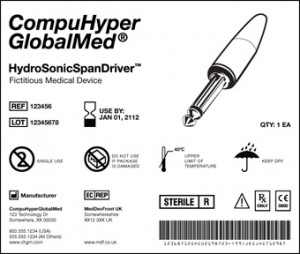The U.S. Food and Drug Administration (FDA) has issued a proposed rule that would require manufacturers to place a unique device identifier (UDI) on medical devices, with the aim to facilitate the reporting of adverse events  related to those devices so that the agency could address them more quickly, including possible recalls.
related to those devices so that the agency could address them more quickly, including possible recalls.
The UDI would provide a unique identifier so that the device could be identified through its distribution and use. A national tracking system would create a common vocabulary for reporting. The action from FDA comes five years after a request from Congress.
“The safety of medical devices is a top priority for the FDA, Congress, industry, and patients,” says FDA Commissioner Margaret A. Hamburg, M.D. “The unique identification system will enhance the flow of information about medical devices, especially adverse events and, as a result, will advance our ability to improve patient safety.”
Besides helping to identify adverse events, reports Ken Terry of FierceHealth IT, the UDIs could be used to:
Reduce medical errors by enabling health care professionals and others to more rapidly and precisely identify a device and obtain important information concerning the characteristics of the device.
Provide a consistent way to enter information about devices in electronic health records and clinical information systems.
Provide a standardized identifier that will allow manufacturers, distributors and healthcare facilities to more effectively manage medical device recalls.
Provide a foundation for a global, secure distribution chain, helping to address counterfeiting and diversion and prepare for medical emergencies.
